
Melina Albanese
PhD Candidate (Epidemiology), University of Toronto
Melina is an Epidemiology PhD candidate and research assistant at the University of Toronto (since 2021). Prior to starting her PhD, Melina completed her B.Sc. in Biology (2018) and M.Sc. in Population and Public Health (2021) at the University of British Columbia (UBC).
Melina has several years' research experience, having previously worked as a research assistant at the UBC Centre for Health Services and Policy Research and the Human Early Learning Partnership at UBC, before starting her PhD and research assistant position at the University of Toronto. Through her academic training and several research assistantships, Melina has experience utilizing quantitative methods to analyze self-reported patient data, survey data, and population-level administrative datasets. Her research ability is demonstrated by several peer-reviewed publications.
Melina's current research is at the intersection of chronic disease epidemiology and maternal and child health. She is currently working on several projects examining the reproductive health of people with chronic health conditions. Her PhD dissertation utilizes Ontario health administrative data (which are generated at every healthcare encounter) to examine the patterns of comorbid (i.e., co-occurring) chronic conditions among people with migraine with a recognized pregnancy as well as the association between pre-pregnancy maternal migraine and adverse perinatal outcomes. Melina is passionate about helping achieve health equity for people living with chronic health conditions such as migraine.
In addition to being a student at the University of Toronto, Melina is also a trainee member of the Women's Health Research Cluster based at UBC and a trainee member of the 2-year interdisciplinary CIHR-funded Guiding interdisciplinary Research On Women's and girls' health and Wellbeing program (2022/23-2023/24 cohort).
Less ![]()
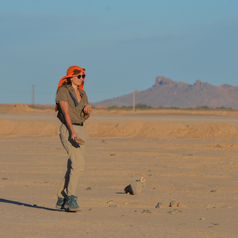
Melina Jobbins
Researcher, Evolutionary Biology, University of Zurich
I have a PhD in Evolutionary Biology from the University of Zurich, Switzerland, specialising on early vertebrates, particularly placoderms. I am now in Winnipeg, Manitoba, Canada, doing some collaborations with Prof. Kirstin Brink's lab. I have research papers in both the vertebrate and invertebrate world. Other than research, I performed taphonomical decay experiments for my MSc, preparation work during my PhD, and have extensive experience in segmentation (Mimics) and fieldwork in remove areas.
Less ![]()

Melinda Jackson
Associate Professor at Turner Institute for Brain and Mental Health, School of Psychological Sciences, Monash University
I am an Associate Professor in the School of Psychological Sciences at Monash University. I am a registered Psychologist, specialising in the treatment of sleep disorders, and an Honorary Research Fellow at the Institute for Breathing and Sleep, Austin Health. I completed my PhD in Neuropsychology and Sleep in 2009, after which I took up a postdoctoral position at the Sleep and Performance Research Center, Washington State University, USA from 2009-2011. My main research interest is in memory function and mood in obstructive sleep apnoea and other sleep disorders, and the role of treatment for sleep for improving mental health and cognitive outcomes.
Less ![]()

Melisa Mete
Lecturer in Marketing, Henley Business School, University of Reading
I am lecturer in Marketing and Programme Director for MSc Marketing programmes at the Henley Business School, University of Reading.
I have a keen interest in all aspects of branding, and my research mainly focuses on exploring how branding can impact our perceptions and behaviour across cultures and diverse digital landscapes.
Less ![]()

Melise Panetta
Lecturer of Marketing in the Lazaridis School of Business and Economics, Wilfrid Laurier University
Melise Panetta is a lecturer in Marketing at the Lazaridis School of Business and Economics. Melise earned her Honors Bachelor of Science degree from the University of Western Ontario and Master of Business Administration at York University's Schulich School of Business. Melise's research interests are focused on consumer behavior, specifically in the area of evolving consumer megatrends and their influence consumer choices, perceptions, and behaviors. Her work has been showcased in Strategy Magazine, Business of Cannabis and Forbes Magazine, among other publications as well as in key industry forums.
Melise is a tenured Business Executive with a 20+ year proven track record of success in Fortune 100 Global CPG companies including PepsiCo, General Mills and SC Johnson, where she held senior positions including Chief Commercial Officer, Vice President of Sales and Marketing and President. Her forward-thinking mentality has led to innovative strategies that break down consumer and customer barriers. Her recent focus has been on publicly traded start-ups, where she has developed corporate strategy and infrastructure with a consumer and customer-inspired approach to achieving revenue growth.
Recognized as an innovator and advocate for education, Melise continues to serve the industry by cultivating the next generation of emergent business leaders in higher education. Melise has served as Lecturer at esteemed academic institutions including Wilfrid Laurier University's Lazaridis School of Business (current), McMaster University's DeGroote School of Business as well as Niagara College where she also serves as industry advisor.
Less ![]()

Melissa Bellanta
Professor of Modern History (Australian Catholic University), Visiting Professor of Australian Studies (Seoul National University), Australian Catholic University
Less ![]()

Melissa Bright
Founder and Executive Director, Center for Violence Prevention Research; Affiliate Faculty with the Crimes Against Children Research Center, University of New Hampshire
After completing her PhD in developmental psychology from the University of Georgia, Dr. Bright spent eight years on the faculty at the University of Florida in both the College of Medicine and College of Education. While at UF, she led evaluations of Florida’s Medicaid programs for children and developed a multidisciplinary research agenda around family violence and social determinants of health.
As her research program advanced, she found the most important part of her work to be partnerships with community-based, direct service providers. More and more she became disenchanted with the distance between her academic position and the community organizations she cared about. In short, the structure of university-based research was not supportive to community-based research. In 2021, Dr. Bright left academia to found the Center for Violence Prevention Research. Her goal was to create a research organization that was accessible to non-researchers and that conducted research with immediate implications for practice.
Dr. Bright’s work has been funded by the National Science Foundation, the American Psychosomatic Society, AcademyHealth, and several not-for-profit organizations. She has published dozens of papers in high impact scientific journals including JAMA Pediatrics and the Morbidity Mortality Weekly Report (MMWR) published by the Centers for Disease Control and Prevention (CDC).
Less ![]()
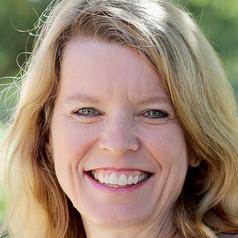
Melissa Franks
Associate Professor of Human Development and Family Studies, Purdue University
I joined the Family Studies faculty in the Department of Child Development and Family Studies at Purdue University in the fall of 2007. My program of research focuses on marital processes in the management of chronic illness. In this work, my colleagues and I investigate health lifestyles and marital interactions and their association with the physical health and psychological well-being of both marital partners. Our current work is funded by the National Institute on Aging.
I am a social psychologist, and I received my doctoral degree from Kent State University. My dissertation research ignited my continuing interest in marital processes in the context of illness. Together with my graduate mentor, Mary Ann Stephens, I investigated the social support that husbands provide to their wives who are caring for an aging parent. This work on family caregiving led me to pursue postdoctoral training in gerontology. I received an NIA postdoctoral fellowship through the Institute of Gerontology at the University of Michigan. My postdoctoral training with Dr. A. Regula Herzog focused on productive aging and on self-making among older adults. Following my postdoctoral training, I joined the faculty at Wayne State University where I began my research on the management of chronic illness in married couples. I later returned to the University of Michigan to continue my research in the Institute for Research on Women and Gender.
At Purdue, I am a faculty associate in the Center on Aging and the Life Course. My families and health research is conducted through the Relationships and Healthcare Lab, in collaboration with Dr. Cleveland Shields. Several exciting projects are underway in this lab, and new projects are being developed by affiliated faculty and students. These projects will contribute new knowledge about the influence of marriage and family relationships on the health and well-being of individual members.
Less ![]()
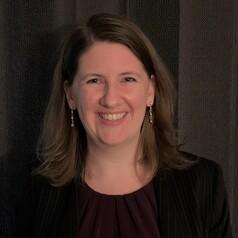
Melissa Garrido
Research Professor, Health Law, Policy & Management, Boston University
Melissa Garrido is a health economist and Director of the Partnered Evidence-Based Policy Resource Center (PEPReC) at the VA Boston Healthcare System. She is also a Senior Research Scientist at the Center for Surgery and Public Health at the Brigham and Women's Hospital and a Research Professor in the Department of Health Law, Policy and Management at the Boston University School of Public Health. She received her PhD in Health Services Research, Policy, and Administration from the University of Minnesota-Twin Cities and completed an NIMH postdoctoral traineeship in mental health services research at the Institute for Health, Health Care Policy, and Aging Research at Rutgers University.
Less ![]()
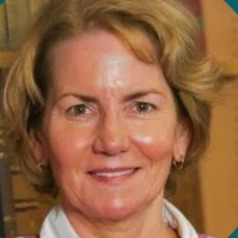
Melissa Hamilton
Professor of Law & Criminal Justice, University of Surrey
I carry out interdisciplinary research on issues related to domestic and sexual violence, trauma responses in victims of assault, risk assessment practices, policing, sentencing, and corrections.
Less ![]()

Melissa Hansen
Ph.D. Candidate in Cognitive Neuroscience, Colorado State University
Melissa Hansen is a graduate student at Colorado State University. She is interested in studying the underlying mechanisms that contribute to the relationship between socioeconomic inequality and neurobiological and cognitive development in children. Melissa received her Bachelor of Arts in Psychology from Baylor University and holds a Master’s degree in Clinical Mental Health Counseling.
Less ![]()

Melissa Hirschi
Associate Professor of Social Work, Utah Valley University
Melissa Hirschi, PhD, LCSW, is an Associate Professor and the BSW Director. She joins UVU from the University of Memphis. In addition to teaching social work students, she has worked for DCFS, with Community Health workers and individuals living with HIV, working with police and Fire/EMS to meet the needs of community members, providing field supervision for social work students, working with free healthcare clinics, and working with students and individuals form the community to expand their training to better serve individuals and families impacted by opioids and other substance use disorders.
Less ![]()
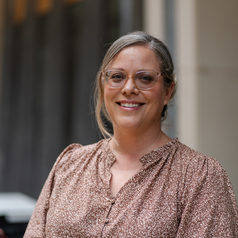
Melissa Humphries
Senior Lecturer, School of Computer and Mathematical Sciences, University of Adelaide
Dr. Melissa Humphries is a statistician – she creates, and applies, analytical tools that make sense of our world. Working in areas like forensic science, defence and psychology, the goal is always to increase efficiency, accuracy, and transparency. Building bridges between machines and experts, Melissa’s work aims to support experts in making decisions in an explainable way. That is useful. And easy to work with. And unbiased. Piece of cake, right?
Melissa is an ex-chef who completed her PhD in Statistics and Mathematical Psychology from the University of Tasmania in 2017 – with an 11-month-old son in tow. She is currently a senior lecturer in statistics at the University of Adelaide and splits her time between teaching, research and fighting for changes that will make academia more accessible to everyone.
Less ![]()

Melissa Iraheta
Melbourne School of Design, The University of Melbourne
Melissa is a multidisciplinary designer and educator working across various technologies and scales.
She works at the intersection of architecture and digital storytelling to investigate its shared experiential ground. She has produced, contributed and exhibited work at Ars Electronica Festival, Vivid Festival Sydney, The Grainger Museum and The David Roche Foundation.
Melissa has taught architecture design studios at RMIT and MSD, Melbourne University. She is currently a Research Assistant as part of the Advanced Digital Design + Fabrication (ADD+F) hub and holds the position of Experimental Technology Coordinator at NExT LAB, Melbourne School of Design & Architecture, The University of Melbourne.
M.Arch
School of Architecture and Urban Design, RMIT University
Less ![]()

Melissa J. Ferguson
Melissa J. Ferguson (melissaferguson[at]cornell.edu) is an experimental social psychologist. She received her doctorate in social psychology from New York University in 2002 and then joined the psychology department at Cornell University. Her research focuses on the implicit and non-conscious cognitive processes that enable evaluation, goal-pursuit, self-control, and social behavior. Three recent topics of research in the lab are self-control (what predicts success?), first impressions (how do they form, change, and influence behavior?), and ideology (how do ideological symbols affect us?). Her research has appeared in outlets such as the Journal of Personality and Social Psychology, Psychological Science, Trends in Cognitive Sciences, Journal of Experimental Psychology: General, and the Proceedings of the National Academy of Sciences and her work has been funded by the National Science Foundation and the National Institutes of Health. She is also currently a Public Voices Fellow of The OpEd Project.
Less ![]()
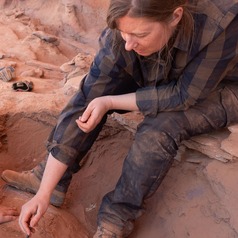
Melissa Kennedy
I am an archaeologist with over 15 years of field and research experience in Jordan, Syria, Lebanon, Saudi Arabia, Greece and Australia. As part of my postgraduate studies at The University of Sydney, I analysed the Tell Nebi Mend, Syria, mid-to-late third millennium BC occupational sequence, which included comprehensive ceramic analysis and full stratigraphic phasing of the site. My post-doctoral work has focused upon the final publication of the later phases of occupation at Tell Um Hammad, Jordan, specifically the Early Bronze Age IV and Iron Age levels, as well as the publication of the third and early second millennia BC sequence at Tell Nebi Mend. I was a Research Fellow at the University of Western Australia on the project Aerial Archaeology in the Kingdom of Saudi Arabia Project (AAKSA). I am now a Lecturer in Archaeology at the University of Sydney and Co-Director of the Prehistoric AlUla and Khaybar Excavation Project (PAKEP).
Less ![]()
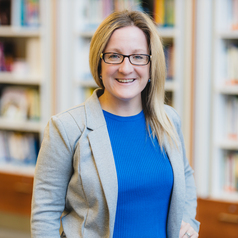
Melissa Kimber
Assistant Professor & Core Member, Offord Centre for Child Studies, Department of Psychiatry & Behavioural Neurosciences, McMaster University
Melissa Kimber, Ph.D., M.S.W., R.S.W., is an Assistant Professor and Core Member of the Offord Centre for Child Studies within the Department of Psychiatry and Behavioural Neurosciences at McMaster University, Canada. She is also Registered Social Worker that continues to provide mental health assessment, advocacy, and psychotherapy in a private practice in Hamilton (Ontario) to children and adolescents (< 17 years) living with mental health challenges. Dr. Kimber received her PhD (2015) in Health Research Methodology from the Department of Health Research Methods, Evidence, and Impact (formerly known as the Department of Clinical Epidemiology and Biostatistics) at McMaster University and completed her CIHR-funded postdoctoral fellowship at the Offord Centre for Child Studies (2018). Her research reflects her personal and professional commitment to improve the lives of children (< 17 years old) who experience family violence (i.e., child maltreatment and intimate partner violence) and mental health challenges, as well as the lives of the health professionals that care for them. For these populations, Dr. Kimber and her team utilize qualitative, quantitative and mixed method research designs to: (a) characterize the prevalence, determinants, and impacts of family violence and mental health challenges; (b) identify and evaluate strategies to improve the efficiency with which individuals receive empirically-supported interventions to mitigate their suffering; as well as (c) identify and evaluate new clinical and educational interventions that can assist in reducing the impacts of family violence and mental health challenges, locally and globally.
Less ![]()

Melissa Lem
Clinical Assistant Professor, Department of Family Practice, University of British Columbia
Dr. Melissa Lem is a Vancouver family physician who also works in rural and northern communities within Canada. President of the Canadian Association of Physicians for the Environment and Director of PaRx, Canada’s national nature prescription program powered by the BC Parks Foundation, she is an internationally recognized leader in the field of nature, biodiversity and health. She has also engaged in advocacy and policy work on a broad range of other issues, from extreme heat and hydraulic fracturing to sustainable health care and low-carbon transportation.
A widely published writer, her work has appeared in media including the CBC, Vancouver Sun, Toronto Star, Montreal Gazette, The Narwhal and National Observer. As a climate change panellist on CBC Radio's Early Edition, in-house medical columnist for CBC TV Vancouver and Clinical Assistant Professor at the University of British Columbia, one of her major priorities is knowledge translation.
Less ![]()
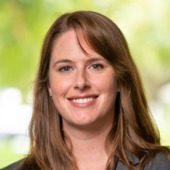
Melissa McCracken
Assistant Professor of International Environmental Policy, Fletcher School, Tufts University
Less ![]()

Melissa Montanari
PhD Candidate in English and Cultural Studies, McMaster University
Melissa Montanari (she/her) is a writer and PhD candidate in the Department of English and Cultural Studies at McMaster University. She is currently completing her dissertation, which is funded by SSHRC (Social Science and Humanities Research Council of Canada) and which aims to bring food and literary studies into critical discourse.
In the Fall of 2021 Melissa taught a second year undergraduate course on Food in Media and Popular Culture. Inspired by students in her course she started a monthly newsletter called "foodstuff," which wades through the cultural, political, environmental and emotional entanglements that food elicits.
Less ![]()
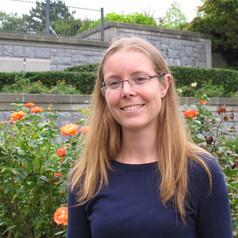
Melissa Moynihan
Research associate, School of Nursing, Trinity Western University
I am passionate about health research, particularly research methodologies, measurement, and data analysis. I received my PhD in Nursing at the University of British Columbia in 2023. My dissertation work tested the theoretical framework of an intervention for runaway adolescents who experienced sexual violence. I am currently involved in projects focused on facilitating the use of patient-reported outcome measures to promote person-centered care and an intervention for individuals receiving dialysis.
Less ![]()

Melissa Pritchard
Professor Emeritus of English and Women’s Studies, Arizona State University
Melissa Pritchard is the author of eleven books, including a novel Palmerino, a story collection, The Odditorium, and an essay collection, A Solemn Pleasure. Among other honors, she has received the Flannery O’Connor Award, the Janet Heidinger Kafka Prize and the Carl Sandburg Literary Award as well as fellowships from the National Endowment for the Arts and the Carson McCullers Center. Emeritus Professor of English and Women’s Studies at Arizona State University, Pritchard's latest book, a highly praised fictional biography of Florence Nightingale, Flight of the Wild Swan, was published by Bellevue Literary Press, NYC in March 2024. An audiobook is also available.
Less ![]()
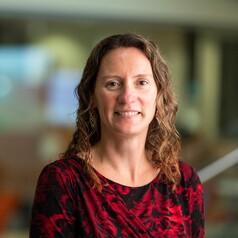
Melissa Skala
Professor of Biomedical Engineering, University of Wisconsin-Madison
Dr. Skala's lab at the Morgridge Institute for Research develops biomedical optical imaging technologies for cancer research, cell therapy, and immunology. Current projects focus on tumor immunology and immunotherapy, cell-level metabolic heterogeneity, and cell-cell interactions. Collaborative projects leverage these unique photonics-based tools for clinical problems, including quality control in T cell and stem cell therapies, designing personalized treatment plans for cancer patients, monitoring diseases in the eye, discovering new therapies for a range of diseases, and many others. Projects are highly diverse and range from translational research to hypothesis-driven questions to algorithm / instrumentation development.
Less ![]()
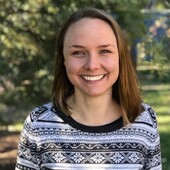
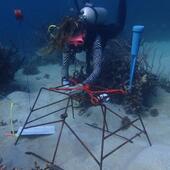
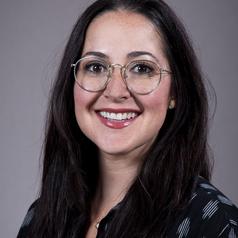
Melissa Arnold Lyon
Assistant Professor of Public Policy, University at Albany, State University of New York
Melissa studies the political economy of education policy, focusing on inequality, governance, and teacher politics and policy. She's interested in how political structures shape and get shaped by the incentives and behaviors of market actors, and conversely how economic inequalities shape the politics of education and education governance.
Her current work centers around labor politics, teacher labor markets, and shifts in education governance (e.g., state takeover). Her research has been published in journals including the Journal of Human Resources (JHR), American Educational Research Journal (AERJ), Political Behavior, Education Finance and Policy, Policy Studies Journal, Educational Researcher, Economics of Education Review, Urban Affairs Review, Journal of Research of Educational Effectiveness, and Teachers College Record.
Less ![]()

Melissa J. Wilde
Professor and Chair of Sociology, University of Pennsylvania
Melissa J. Wilde is a sociologist of religion and inequality. She is currently serving as the Chair of the Department of Sociology. She joined the department at the University of Pennsylvania in 2006, where she was undergraduate chair from 2013-2017. She has published award-winning articles in the American Sociological Review and the American Journal of Sociology. Her recent book, Birth Control Battles, demonstrates that support for contraception among some of America’s most prominent religious groups was tied to eugenicist views of race, immigration and manifest destiny.
Less ![]()

Melissa K. Merry
Associate Professor of Political Science, University of Louisville
Melissa Merry received a B.A. in Environmental Studies from Hampshire College and a Ph.D. in Political Science from the University of Washington, with specializations in American Politics and Public Policy. Before joining the faculty at University of Louisville, she spent one year as a Visiting Professor at Pacific Lutheran University. Her research interests include environmental politics and policy, interest groups, and political communication. Her scholarly articles have appeared in American Politics Research, Journal of Information Technology & Politics, Online Information Review, Review of Policy Research, Policy & Internet, and Policy Studies Journal.
Melissa is the author of two books, one examining environmental groups’ communications in the aftermath of the Deepwater Horizon oil spill of 2010, and the other examining the policy narratives of gun control and gun rights organizations. Her current research focuses on health care policy and involves analysis of public comments submitted between 2016 and 2018 in response to proposed changes to Kentucky’s Medicaid program.
Less ![]()
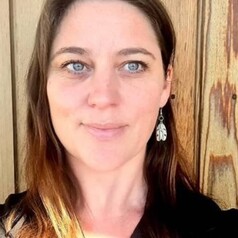
Melissa L. Gould
Senior Lecturer in Critical Media Studies, Auckland University of Technology
Kia ora! I'm a senior lecturer and researcher in the Critical Media Studies Department, at Auckland University of Technology's Te Kura Whakapaho (School of Communication Studies).
My current research focuses on media literacy, promotional culture, and childhood studies, and the mediated representations of gender and religion.
I am particularly interested in how the media helps shape our identity and empowering (particularly young) people to have agency over how they interact with media.
Less ![]()
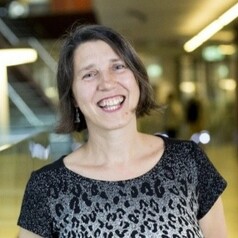
Melita Jazbec
Research Principal at the Institute for Sustainable Futures, University of Technology Sydney
Melita is a Research Principal at UTS Institute for Sustainable Futures and leader of the Resource Flows team. Her main work and research focus on circular economy in Energy, Water and Resources sectors.
Melita's research aims to identify the transition pathways to a circular economy, including development of policy, modelling resource streams and identifying options and practical solutions for businesses and governments.
Less ![]()
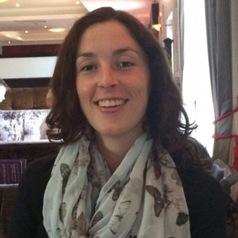
Mellissa Prunty
Reader in Occupational Therapy, Brunel University London
Mellissa is the Divisional Lead for Occupational Therapy at Brunel University London. She is a children's Occupational Therapist by background. She qualified from the MSc (pre-reg) programme at Glasgow Caledonian University in 2010. She previously completed a BSc (Hons) in Kinesiology at Memorial University of Newfoundland in Canada, while on athletic scholarship for women’s basketball. She completed her PhD on handwriting difficulties in children with Developmental Coordination Disorder (DCD), which she undertook at Oxford Brookes University under the supervision of Prof. Anna Barnett, Dr. Mandy Plumb and Dr. Kate Wilmut. Mellissa has worked in a variety of children's' services and specialises in working with children with coordination difficulties. She founded the children's occupational therapy research clinic (Kidspace) at the university which investigates key skills and participation in childhood including handwriting, activities of daily living and cycling. The clinic currently offers placements to occupational therapy students at the university.
Membership and affiliation
Mellissa is a Professional Member of the British Association of Occupational Therapists (BAOT) and the Health and Care Professions Council (HCPC). She is Chair of the National Handwriting Association (NHA) . She has developed a West London Handwriting Interest Group, which brings together local parents, teachers and therapists to discuss issues concerning the teaching and learning of handwriting in children.
Less ![]()
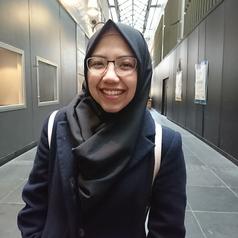
Melly Masni
Lecturer in Political Science, Universitas Islam Negeri Ar-Raniry
Dosen Ilmu Politik UIN Ar-Raniry
Less ![]()

Mélodie Anderson
Auxiliaire de recherche en agriculture et systèmes alimentaires durables, Bishop's University
Je suis auxiliaire de recherche en Agriculture et systèmes alimentaires durables (ASAD) à l'Université Bishop's, en territoire non cédé de la nation abénakise connu comme Sherbrooke, Québec.
Enrichie de mon expérience dans le milieu communautaire comme éducatrice, je m'intéresse présentement à la souveraineté alimentaire, et partculièrement aux modèles alternatifs et coopératifs de production et de mise en marché ainsi qu'à l'insécurité alimentaire. Dans le cadre de ma dernière année comme étudiante en ASAD et dans une perspective décoloniale, je réalise actuellement un projet de recherche sur la place des chercheur.euse.s en support à la souveraineté alimentaire autochtone en context canadien.
Less ![]()
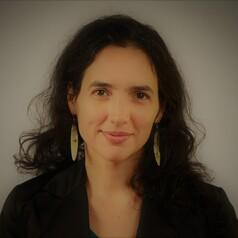
Mélodie Beaujeu
Consultante et chercheuse, affiliée à l'Institut Convergences Migrations, Sciences Po
Actuellement consultante indépendante spécialisée sur les enjeux de migrations internationales, cofondatrice de l'association Désinfox-Migrations et membre de l’Institut Convergence Migrations, je travaille et mène des études et recherches depuis plus de dix ans sur les enjeux liés aux migrations internationales en lien avec diverses organisations (ONG, institutions publiques, organisations internationales, centres de recherche).
Less ![]()

Melodie McGeoch
Professor, La Trobe University
Melodie McGeoch is an ecologist that works on biodiversity change, combining theory and analytics to address central environmental challenges, including climate change impacts and biological invasions. She works across taxa and regions, including in the Antarctic, is active in the translation of science for biodiversity policy and holds multiple professional leadership positions in Australia and internationally.
Less ![]()
- Market Data























